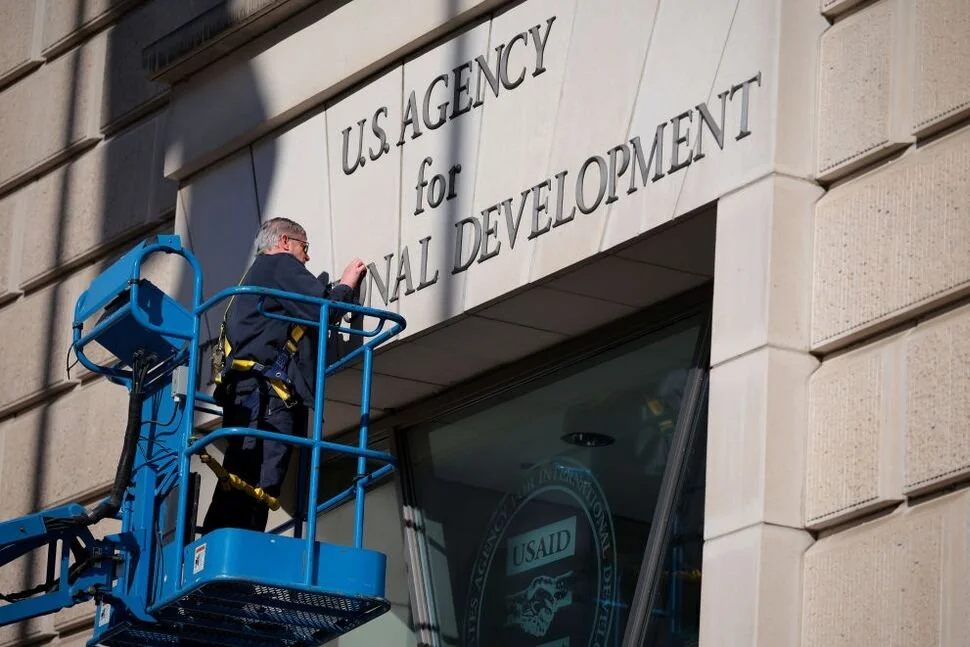Germany’s Snap Elections: A Disillusioned and Dissatisfied Public
After three years of tumultuous governing, the 3-party coalition, led by then Chancellor and head of the Social Democratic Party’s (SPD) Olaf Scholz, collapsed. Seven months ahead of schedule, this caused snap elections. The traffic light coalition, named for the red, yellow, and green colours of its member parties – the SPD, FDP, and Green parties, respectively – represented one of the least popular governments in recent German history. Years of economic sluggishness, rising housing and energy costs, and growing geopolitical tensions left the German public dissatisfied. A government that had promised to revitalise progressive politics following 16 years of conservative centrism helmed by Angela Merkel’s Christian Democratic Union (CDU) only led to disillusionment.
The February elections were unprecedented not just because of their early occurrence, but also because of their record turnout; 82.5% of eligible voters cast a ballot, the highest recorded participation since reunification. Germany made its frustration known in its voting; the SPD lost nearly 10% of the total vote share, with its previous partners, the Greens and FDP, also taking heavy losses. But how do the votes translate to actual parliamentary power? The German parliament has 630 seats, requiring 316 to comprise the majority. The SPD, formerly holding 207 spots, held onto only a mere 120. The CDU gained 12 seats, raising its total to 208. The Greens lost 32 seats, leaving them with 85. The Alternative for Germany Party (AfD), an alt-right group, now has 152 members, a stark increase from their previous 76; Die Linke, Germany’s far-left political faction, holds 64, 36 of which are newly theirs. The FDP, which had controlled 90 members, did not pass the 5% threshold and will not participate in the new parliament.
Die Linke had the largest relative growth of any party, overdoubling its representation, yet it maintains its position on the fringes as the weakest of the major factions. Conversely, the AfD, a categorically anti-Semitic, Islamophobic, and anti-democratic party, skyrocketed from fourth to second largest, only after Angela Merkel's former party, the newly empowered CDU.
The growing discontent with center-left governing intermingled with a swelling, and not-so-subtly, racially charged anti-immigration ideological movement. The AfD is a relatively new political faction, only founded in 2013, yet it is already fraught with political and legal challenges. The German Institute of Human Rights reported the AfD as aiming to eliminate the democratic order. German courts have consistently upheld the federal government’s right and obligation to monitor the group as a dangerous extremist organization. Considered outright fascist by many, the AfD has repeatedly appealed to Nazi messaging and xenophobic rhetoric. Their leader, Björn Höcke, has been fined on multiple occasions for the inclusion of the Nazi slogan “Everything for Germany” in his campaigning. His predecessor, party co-founder and current parliamentary member, Alexander Gauland, publicly stated the country should be “proud of the achievements of German soldiers in two world wars.” Despite the series of troubling occurrences, of which only a few have been listed, the AfD has garnered support and sympathy from the German public, especially in the east, winning several state elections over the past few years.
Despite their growing popularity, the AfD remains the black sheep of the German government. Friedrich Merz, leader of the CDU and newly elected Chancellor, has been vocal in his rejection of their fascist ideations. He explicitly repudiates any coalition with the extremist party, citing the ‘firewall’ between parliamentary control and antidemocratic agendas. Instead, Merz plans to turn to the SPD, forming a 328-seat coalition, only 12 above the threshold.
While most likely weeks away, the new coalition already faces real challenges. Merz and others have communicated fears regarding the US’s influence and dwindling presence in Europe, issues that were further exacerbated by Elon Musk’s outspoken endorsement for the ostracized AfD. The country is also deeply divided, with growing disenchantment with the major parties in the East, plainly demonstrated by their increasing support for both the AfD and Die Linke.
It is also unclear how the CDU and SPD will come to terms regarding certain ideological schisms, such as immigration. While the SPD flaunts policies to expand integration systems such as German language support and employment assistance, the conservative CDU has faced competition from the staunchly anti-immigrant AfD, causing it to pivot further to the right and propose an immediate freeze on all immigration. The SPD hopes to continue the longstanding prioritization of family reunification; the newly repositioned CDU platform contends such programs should be put on an indefinite moratorium. They also hold divergent economic stances with the SPD’s defense of the welfare state starkly contrasting the broadly pro-business, anti-tax rhetoric of the CDU. Both parties are abjectly pro-Ukraine, though the CDU holds much more hawkish views regarding military spending, NATO protection, and economic disentanglement from China. It is yet to be seen how these differences will impact the government set to be formed in the coming days and weeks, with the German people hoping for increased stability and direction from the new leadership.
This election was seen by the population as a referendum on fractured governance, economic stagnation, and growing fears about rising immigration. It saw drastic rises in support for the right-wing AfD, only staved off by the CDU’s unwillingness to tolerate or validate their extremist views, and an unprecedented spike in the highly progressive Die Linke. The question is now if the new coalition can regain the faith of their constituents and fend off attacks from the growing sect of fascist ideologues.
Graphic generated with Datawrapper.
The views and opinions expressed in this article are those of the author and do not necessarily reflect those of the wider St. Andrews Foreign Affairs Review team.



